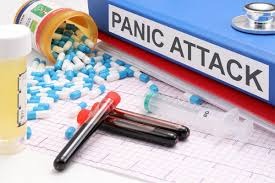What Really Happens During a Panic Attack?
A panic attack doesn’t always look like flailing arms and loud gasps. Sometimes, it’s a still body with a storm inside. The heart races. Breathing goes shallow. The air feels too thin. You might feel dizzy or shaky, like you’re about to pass out. But you’re not. That’s the trick of it—your brain makes the fear real, even when nothing around you is actually dangerous.

The Body’s False Alarm
When panic hits, your system kicks into overdrive. Heart thumping, chest tight, breath short. Sweat gathers, hands tremble, and some people feel like they’re choking or getting lightheaded. This happens because your nervous system thinks you’re in danger. It preps your body to run or fight.
The truth? There’s usually no real threat. But the body doesn’t care. Once the brain sends that alert, the floodgates open—adrenaline pours in, your muscles tense, your pupils widen. All of it happens fast. You don’t even get a chance to explain to your body that there’s no need to panic.
Fear Starts in the Brain
There’s this part of your brain called the amygdala. It controls fear. When it senses anything strange—maybe a weird physical feeling or a stressful thought—it sounds the alarm. That alarm travels through your whole system, telling your body to gear up for danger.
But logic and fear don’t always talk. You might know you’re safe, but still feel like you’re dying. That’s because your thinking brain—the part that processes facts—gets drowned out by the part screaming “Danger!” And that’s why panic attacks feel so overwhelming.
Time Gets Weird
Minutes stretch. Or they vanish. Everything feels off. People say it’s like watching yourself in a movie or floating above your own body. That disconnection is real. It’s a known reaction to intense stress—your brain trying to protect you by pulling you away from the experience.
The Fear of Fear
Panic attacks don’t just bring fear. They bring the fear of fear. You start worrying about the next one. That worry builds tension, which makes your body sensitive to every little sensation—every skipped heartbeat, every breath. And when your body notices those signs, your brain jumps in. Again.
It turns into a loop: worry causes symptoms, which causes panic, which causes more worry.
What Starts a Panic Attack?
Anything. Or nothing. Some people are triggered by specific fears—like being in a crowded place or driving. Others feel it coming after weeks of stress or too much caffeine or not enough sleep. But for many, it just shows up without reason.
That’s part of the cruelty—it feels unpredictable. Like you’re walking through your own life, not knowing when it’ll strike.
The Come-Down
After the peak, everything slows. But the effects don’t disappear right away. You might feel drained, like your limbs are heavy. Maybe your head hurts. Some people cry after. Others feel embarrassed or even ashamed, especially if someone else saw it happen.
That exhaustion isn’t in your head. Panic attacks take real energy. Your body’s been flooded with stress chemicals. It needs time to recover.
Living With Panic Attacks
Some folks only have a couple in their lives. Others get stuck in a cycle where panic becomes regular. They might start avoiding places or situations that feel unsafe. Slowly, their world shrinks. It’s not the attack itself that traps them—it’s the fear of having another.
But there’s help. Therapy—especially Cognitive Behavioral Therapy—teaches people to understand and challenge the thoughts that fuel panic. Medications help some. So do breathing exercises, grounding tools, and even just knowing you’re not alone.
What Can You Do When It Hits?
You don’t always get warning, but if you do, try this:
- Breathe slowly. In through your nose, out through your mouth. Count to four in, six out. Do it again.
- Ground yourself. Look around. Touch something. Say where you are, what you see, what day it is.
- Talk to yourself gently. Remind yourself: this is panic. It will pass. You’re safe.
And No—You’re Not Broken
Panic attacks are common. So common, in fact, that millions of people have experienced them. They don’t make you weak. They don’t mean you’re broken. They’re just a sign your body and mind are trying—maybe too hard—to keep you safe.
You don’t owe anyone an explanation for your fear. But if you choose to share it, choose someone who listens. Who believes you. Who won’t say “just calm down.”
Panic attacks aren’t about attention. They’re not about drama. They’re about survival misfiring in a world that doesn’t always understand.




